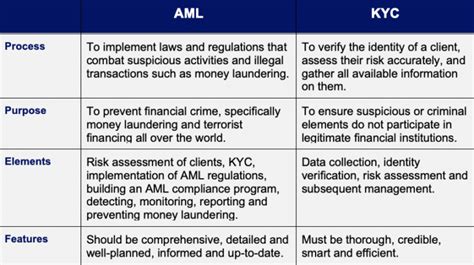- CRYPTOCURRENCY
-
by admin
Crypto KYC: Understanding the Rules and Finding the Loopholes
The rise of cryptocurrencies has opened up new opportunities for financial transactions, but it also poses a number of regulatory challenges. The Know Your Customer (KYC) regulations that govern traditional banking systems have been adapted to meet the unique requirements of digital currencies.
In this article, we will delve into the world of cryptocurrency KYC, examining the current state of the regulations and identifying potential loopholes for those looking to take advantage of them.
What is Crypto KYC?
Crypto KYC refers to the process by which cryptocurrency exchanges and other digital market participants verify the identities of their users. It involves collecting and verifying various types of information, such as name, address, email, phone number, and other identifying information.
Crypto KYC regulations aim to prevent money laundering, terrorist financing, and other illegal activities by ensuring that all users are who they say they are. Regulations typically require exchanges to verify users’ identities through a number of means, including:
- Social Media Profiles: Many exchanges now accept social media profiles as a form of identification.
- Government-Issued ID: Some exchanges accept government-issued identification documents, such as passports or driver’s licenses.
- Phone Numbers and Email Addresses: Exchanges often use phone numbers and email addresses to verify user information.
- Biometrics: Some exchanges have begun accepting biometrics, such as fingerprints or facial recognition.
Current State of the Regulations
The cryptocurrency KYC regulatory landscape has been shaped by a series of high-profile incidents, including the collapse of major cryptocurrency exchanges such as Mt. Gox and BitFinex. These events have led to widespread criticism of traditional regulations and calls for greater flexibility in their application to digital currencies.
In response, governments around the world have introduced new regulations requiring exchanges to implement additional KYC measures. For example:
- FinCEN Regulations
: In the United States, regulators such as FinCEN require cryptocurrency exchanges to implement AML (Anti-Money Laundering) and KYC checks.
- European Union Anti-Money Laundering Directive: The European Union has introduced a series of anti-money laundering measures that apply to all financial institutions, including cryptocurrency exchanges.
Potential Drawbacks
Despite the increasing regulations, there are still potential loopholes for those who want to use them:
- Limited Information Requirements: Some exchanges may not require as much information from users, making it easier to bypass KYC checks.
- Exceptions and Exemptions: Certain types of users, such as minors or individuals with limited financial resources, may be exempt from certain regulatory requirements.
- Use of Third-Party Services

: Exchanges may use third-party services, such as identity verification service providers, to fulfill KYC obligations without directly collecting user information.
- Cryptocurrency-Related Vulnerabilities: Some cryptocurrencies are designed with specific features that make them more vulnerable to illicit activities, such as high-speed transaction processing and minimal regulatory oversight.
Mitigate Risks
As regulations continue to evolve, it is important for cryptocurrency exchanges to take steps to mitigate the risks associated with cryptocurrency KYC:
- Implement robust KYC checks: Exchanges should ensure that their KYC checks are comprehensive and up-to-date.
- Use multiple identification methods: Exchanges can use a combination of social media profiles, government-issued ID, phone number, and email address to verify user information.
3.
